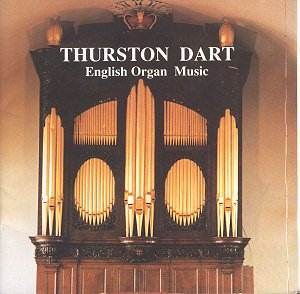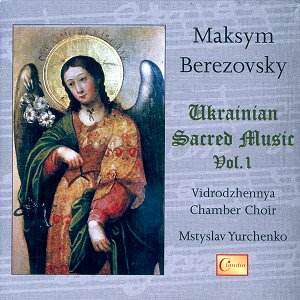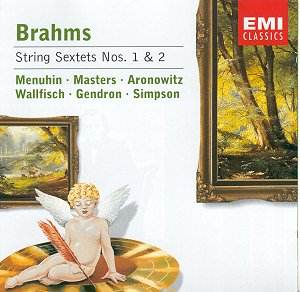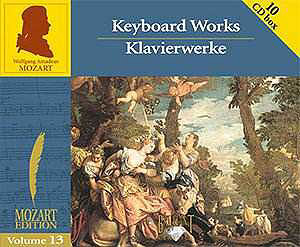 Composer: Thurston Dart
Composer: Thurston Dart
Works: William Byrd: A Fancy, A Voluntarie; John Bull: Salvator Mundi Deus, Fantasia; Orlando Gibbons: In Nomine, Fantasia; Thomas Tomkins: Fancy; John Blow: Verset in D minor, Prelude in A; Matthew Locke: For a Double Organ; Henry Purcell: Voluntary on the Old Hundredth Psalm Tune, Verset; Maurice Greene: Voluntary No 2; George Frideric Handel: Fugue in F, Entrée, Menuet, Gavotte, Air Lentement, Concerto (Allegro); James Nares: Introduction and Fugue; William Boyce: Voluntary No 7; John Stanley: Voluntary Op. 7, No 9
Performers: Thurston Dart (Organ)
Recording: Various venues in the UK, 1957
Label: EMI
Thurston Dart, a pivotal figure in the revival of early music during the mid-20th century, is celebrated not only for his scholarly contributions but also for his dynamic performances. This reissue of his recordings of English organ music, originally made in 1957, offers a fascinating glimpse into the repertoire that shaped the English organ tradition. Dart’s interpretations of works by composers ranging from Byrd to Handel resonate with historical significance, reflecting both the stylistic tendencies of the early music movement and Dart’s own interpretive flair.
Dart’s approach to these pieces is characterized by a rhythmic vitality that enlivens even the more pedestrian selections. His articulation and phrasing create a sense of buoyancy, particularly evident in Byrd’s “A Fancy,” where the interweaving lines come alive with a delicate interplay of light and shade. The clarity of the counterpoint in Gibbons’ “In Nomine” allows listeners to appreciate the intricate harmonic structures, while Dart’s nuanced touch brings a fresh perspective to John Blow’s “Prelude in A.” Each piece is imbued with a sense of purpose, demonstrating Dart’s keen understanding of the idiomatic characteristics of the music.
The recording quality, overseen by producer Peter Andry and engineer Neville Boyling, stands the test of time remarkably well. Despite its vintage, the clarity of the instruments and the acoustic warmth of the venues—particularly the intimate Holy Trinity Chapel—enhance the listening experience. The four organs utilized, each representing a different facet of English organ craftsmanship, contribute their own timbral colors, enriching the overall texture. For instance, the resonant yet warm sound of the Staunton Harold organ complements the more robust sonorities found in the works of Purcell and Handel, creating a dynamic contrast that is both engaging and illuminating.
Dart’s interpretations hold up well against more contemporary recordings of this repertoire. While some modern organists may emphasize a more varied dynamic range or employ extensive registrations, Dart’s restrained yet expressive choices resonate with authenticity. His rendition of Handel’s “Fugue in F” retains a buoyant energy, yet it is the subtlety of phrasing that reveals the depth of his musicianship. The inclusion of lesser-known composers like James Nares, whose “Introduction and Fugue” has been largely overlooked, underscores Dart’s commitment to showcasing the breadth of English organ music, inviting listeners to explore beyond the well-trodden paths of the canon.
This release serves as both a tribute to a remarkable artist and a valuable resource for enthusiasts of early music. Dart’s performances, characterized by their rhythmic zest and thoughtful interpretations, breathe life into a repertoire that is often relegated to the shadows of more prominent figures. The careful curation of the program, alongside the historical context provided in the accompanying booklet, further enriches the listener’s experience, making this collection an essential addition to the libraries of both scholars and casual listeners alike.



